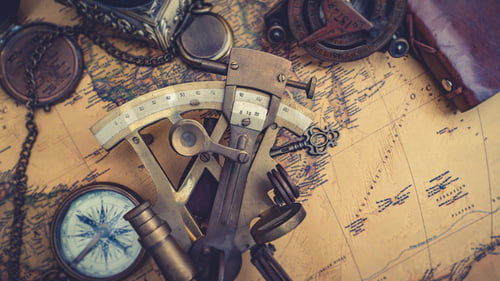Maritime & Weather Station
Clocks and devices which are being used on the ships. A marine chronometer is a precision timepiece that is carried on a ship and employed in the determination of the ship's position by celestial navigation. It is used to determine longitude by comparing Greenwich Mean Time (GMT) and the time at the current location found from observations of celestial bodies. In the early 18th century, sailors could measure latitude using the sun and stars. However, there were no accurate means to determine the longitudinal coordinate of a ship's location. It was known that the coordinates could be calculated mathematically by comparing two accurate times—one at a known longitude and the other at an unknown point. Unfortunately, the pendulum clocks of the day could not be counted on to keep reliable measures when subjected to the rolling of a ship on ocean waves. After several naval disasters resulted from poor navigation, the British government offered a reward for technical solutions to the problem of longitude. The Longitude Act of 1714 offered £20,000 ($26,302) to anyone who could devise an accurate method of calculating the location of a ship within one half degree. Invented by Englishman John Harrison, the marine chronometer allowed sailors to keep accurate time despite the rolling of the sea and while moving through time zones.

